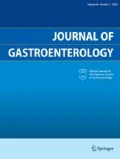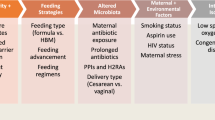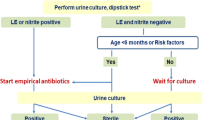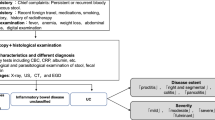Abstract
The use of proton pump inhibitors (PPIs) may potentially predispose to the development of small intestinal bacterial overgrowth (SIBO), but this association is controversial due to conflicting results from studies conducted to date. The aim of this meta-analysis was to evaluate the association between the use of PPIs and the risk of SIBO. We systematically searched the online PubMed, Embase, and Cochrane Library databases and Web of Science for relevant articles published up to November 2016. Two researchers identified and extracted data independent of each other. The pooled analysis was performed using the generic inverse-variance random-effects model. Subgroup and sensitivity analysis were conducted to assess the stability and heterogeneity of the pooled results. The risk of publication bias was evaluated by assessing for funnel plot asymmetry and by Egger’s test and Begg’s test. A total of 19 articles met the eligibility criteria for the meta-analysis, reporting on 7055 subjects. The pooled odds ratio (OR) showed a statistically significant association between increased risk of SIBO and PPI use (OR 1.71, 95% confidence interval 1.20–2.43). Subgroup analyses demonstrated an association between SIBO and PPI use in studies that employed small bowel aspirates culture and glucose hydrogen breath tests (GHBT) as diagnostic tests for SIBO. Our meta-analysis suggests that the use of PPI moderately increases the risk of SIBO, thereby highlighting the need for appropriate prescribing of PPIs.



Similar content being viewed by others
References
Corleto VD, Festa S, Di Giulio E, et al. Proton pump inhibitor therapy and potential long-term harm. Curr Opin Endocrinol Diabetes Obes. 2014;21(1):3–8.
Bartholow M. Top 200 prescription drugs of 2009. Pharmacy Times. 2010. http://www.pharmacytimes.com/publications/issue/2010/may2010/rxfocustopdrugs-0510.
Hollingworth S, Duncan EL, Martin JH. Marked increase in proton pump inhibitors use in Australia. Pharmacoepidemiol Drug Saf. 2010;19(10):1019–24.
Batuwitage BT, Kingham JG, Morgan NE, et al. Inappropriate prescribing of proton pump inhibitors in primary care. Postgrad Med J. 2007;83(975):66–8.
Ramirez E, Lei SH, Borobia AM, et al. Overuse of PPIs in patients at admission, during treatment, and at discharge in a tertiary Spanish hospital. Curr Clin Pharmacol. 2010;5(4):288–97.
Forgacs I, Loganayagam A. Overprescribing proton pump inhibitors. BMJ. 2008;336(7634):2–3.
Schnoll-Sussman F, Katz PO. Clinical implications of emerging data on the safety of proton pump inhibitors. Curr Treat Options Gastroenterol. 2017;15(1):1–9.
Posserud I, Stotzer PO, Bjornsson ES, et al. Small intestinal bacterial overgrowth in patients with irritable bowel syndrome. Gut. 2007;56(6):802–8.
King T. Small intestinal bacterial overgrowth and irritable bowel syndrome. JAMA. 2004;292(18):2213 (author reply 2213–4).
Laine L, Ahnen D, McClain C, et al. Review article: potential gastrointestinal effects of long-term acid suppression with proton pump inhibitors. Aliment Pharmacol Ther. 2000;14(6):651–68.
Fried M, Siegrist H, Frei R, et al. Duodenal bacterial overgrowth during treatment in outpatients with omeprazole. Gut. 1994;35(1):23–6.
Gough A, Andrews D, Bacon PA, et al. Evidence of omeprazole-induced small bowel bacterial overgrowth in patients with scleroderma. Br J Rheumatol. 1995;34(10):976–7.
Lewis SJ, Franco S, Young G, et al. Altered bowel function and duodenal bacterial overgrowth in patients treated with omeprazole. Aliment Pharmacol Ther. 1996;10(4):557–61.
Liang SF, Xu L, Zhang DS, et al. Effect of probiotics on small intestinal bacterial overgrowth in patients with gastric and colorectal cancer. Turk J Gastroenterol. 2016;27(3):227–32.
Giamarellos-Bourboulis EJ, Pyleris E, Barbatzas C, et al. Small intestinal bacterial overgrowth is associated with irritable bowel syndrome and is independent of proton pump inhibitor usage. BMC Gastroenterol. 2016;16(1):67–73
Enko D, Kriegshauser G. Functional 13C-urea and glucose hydrogen/methane breath tests reveal significant association of small intestinal bacterial overgrowth in individuals with active Helicobacter pylori infection. Clin Biochem. 2016;50(1-2):46–9.
Schatz RA, Zhang Q, Lodhia N, et al. Predisposing factors for positive d-Xylose breath test for evaluation of small intestinal bacterial overgrowth: a retrospective study of 932 patients. World J Gastroenterol. 2015;21(15):4574–82.
Franco DL, Disbrow MB, Kahn A, et al. Duodenal aspirates for small intestine bacterial overgrowth: yield, PPIs, and outcomes after treatment at a Tertiary Academic Medical Center. Gastroenterol Res Pract. 2015;2015:971582.
Senderovky M, Lasa J, Dima G, et al. Influence of proton pump inhibitors on intestinal fermentative profile: a case–control study. Acta Gastroenterol Latinoam. 2014;44(3):205–9.
Jacobs C, Coss Adame E, Attaluri A, et al. Dysmotility and proton pump inhibitor use are independent risk factors for small intestinal bacterial and/or fungal overgrowth. Aliment Pharmacol Ther. 2013;37(11):1103–11.
Ratuapli SK, Ellington TG, O’Neill MT, et al. Proton pump inhibitor therapy use does not predispose to small intestinal bacterial overgrowth. Am J Gastroenterol. 2012;107(5):730–5.
Compare D, Pica L, Rocco A, et al. Effects of long-term PPI treatment on producing bowel symptoms and SIBO. Eur J Clin Invest. 2011;41(4):380–6.
Choung RS, Ruff KC, Malhotra A, et al. Clinical predictors of small intestinal bacterial overgrowth by duodenal aspirate culture. Aliment Pharmacol Ther. 2011;33(9):1059–67.
Lombardo L, Foti M, Ruggia O, et al. Increased incidence of small intestinal bacterial overgrowth during proton pump inhibitor therapy. Clin Gastroenterol Hepatol. 2010;8(6):504–8.
Law D, Pimentel M. Proton pump inhibitor therapy does not affect hydrogen production on lactulose breath test in subjects with IBS. Dig Dis Sci. 2010;55(8):2302–8.
Majewski M, McCallum RW. Results of small intestinal bacterial overgrowth testing in irritable bowel syndrome patients: clinical profiles and effects of antibiotic trial. Adv Med Sci. 2007;52:139–42.
Pereira SP, Gainsborough N, Dowling RH. Drug-induced hypochlorhydria causes high duodenal bacterial counts in the elderly. Aliment Pharmacol Ther. 1998;12(1):99–104.
Hutchinson S, Logan R. The effect of long-term omeprazole on the glucose-hydrogen breath test in elderly patients. Age Ageing. 1997;26(2):87–9.
Thorens J, Froehlich F, Schwizer W, et al. Bacterial overgrowth during treatment with omeprazole compared with cimetidine: a prospective randomised double blind study. Gut. 1996;39(1):54–9.
Lo WK, Chan WW. Proton pump inhibitor use and the risk of small intestinal bacterial overgrowth: a meta-analysis. Clin Gastroenterol Hepatol. 2013;11(5):483–90.
Stewart LA, Clarke M, Rovers M, et al. Preferred reporting items for systematic review and meta-analyses of individual participant data: the PRISMA-IPD statement. JAMA. 2015;313(16):1657–65.
Wells GA, Shea B, O’Connell D et al. The Newcastle–Ottawa Scale (NOS) for assessing the quality of nonrandomised studies in meta-analyses. Ottawa Hospital Research Institute, Ottawa
Higgins JP, Thompson SG. Quantifying heterogeneity in a meta-analysis. Stat Med. 2002;21(11):1539–58.
Tsuda A, Suda W, Morita H, et al. Influence of proton-pump inhibitors on the luminal microbiota in the gastrointestinal tract. Clin Transl Gastroenterol. 2015;6:e89.
Freedberg DE, Toussaint NC, Chen SP, et al. Proton pump inhibitors alter specific taxa in the human gastrointestinal microbiome: a crossover trial. Gastroenterology. 2015;149(4):883–5.e9.
Ardatskaia MD, Loginov VA, Minushkin ON. Syndrome of bacterial overgrowth in patients with the reduced stomach acid secretion: some aspects of the diagnosis. Eksp Klin Gastroenterol. 2014;12:30–6.
Pyleris E, Giamarellos-Bourboulis EJ, Tzivras D, et al. The prevalence of overgrowth by aerobic bacteria in the small intestine by small bowel culture: relationship with irritable bowel syndrome. Dig Dis Sci. 2012;57(5):1321–9.
Sterne JA, Gavaghan D, Egger M. Publication and related bias in meta-analysis: power of statistical tests and prevalence in the literature. J Clin Epidemiol. 2000;53(11):1119–29.
Egger M, Juni P, Bartlett C, et al. How important are comprehensive literature searches and the assessment of trial quality in systematic reviews? Empirical study. Health Technol Assess. 2003;7(1):1–76.
Terrin N, Schmid CH, Lau J, et al. Adjusting for publication bias in the presence of heterogeneity. Stat Med. 2003;22(13):2113–26.
Peters JL, Sutton AJ, Jones DR, et al. Performance of the trim and fill method in the presence of publication bias and between-study heterogeneity. Stat Med. 2007;26(25):4544–62.
Nelis GF, Engelage AH, Samson G. Does long-term inhibition of gastric acid secretion with omeprazole lead to small intestinal bacterial overgrowth? Neth J Med. 1994;45(3):93–100.
Hawkey CJ, Richter JE, et al., editors. Textbook of clinical gastroenterology and Hepatology. Hoboken: Wiley; 2012.
Gasbarrini A, Corazza GR, Gasbarrini G, et al. Methodology and indications of H2-breath testing in gastrointestinal diseases: the Rome consensus conference. Aliment Pharmacol Ther. 2009;29(Suppl 1):1–49.
Rana SV, Sharma S, Kaur J, et al. Comparison of lactulose and glucose breath test for diagnosis of small intestinal bacterial overgrowth in patients with irritable bowel syndrome. Digestion. 2012;85(3):243–7.
Yu D, Cheeseman F, Vanner S. Combined oro-caecal scintigraphy and lactulose hydrogen breath testing demonstrate that breath testing detects oro-caecal transit, not small intestinal bacterial overgrowth in patients with IBS. Gut. 2011;60(3):334–40.
Chu H, Fox M, Zheng X, et al. Small intestinal bacterial overgrowth in patients with irritable bowel syndrome: clinical characteristics, psychological factors, and peripheral cytokines. Gastroenterol Res Pract. 2016;2016:3230859.
Abbasi MH, Zahedi M, Moghadam SD, et al. Small bowel bacterial overgrowth in patients with irritable bowel syndrome: the first study in iran. Middle East. J Dig Dis. 2015;7(1):36–40.
Moraru IG, Moraru AG, Andrei M, et al. Small intestinal bacterial overgrowth is associated to symptoms in irritable bowel syndrome. Evidence from a multicentre study in Romania. Rom J Intern Med. 2014;52(3):143–50.
Spiegel BM, Chey WD, Chang L. Bacterial overgrowth and irritable bowel syndrome: unifying hypothesis or a spurious consequence of proton pump inhibitors? Am J Gastroenterol. 2008;103(12):2972–6.
Talley NJ, Dennis EH, Schettler-Duncan VA, et al. Overlapping upper and lower gastrointestinal symptoms in irritable bowel syndrome patients with constipation or diarrhea. Am J Gastroenterol. 2003;98(11):2454–9.
Locke GR 3rd, Zinsmeister AR, Fett SL, et al. Overlap of gastrointestinal symptom complexes in a US community. Neurogastroenterol Motil. 2005;17(1):29–34.
Ford AC, Spiegel BM, Talley NJ, et al. Small intestinal bacterial overgrowth in irritable bowel syndrome: systematic review and meta-analysis. Clin Gastroenterol Hepatol. 2009;7(12):1279–86.
Nucera G, Gabrielli M, Lupascu A, et al. Abnormal breath tests to lactose, fructose and sorbitol in irritable bowel syndrome may be explained by small intestinal bacterial overgrowth. Aliment Pharmacol Ther. 2005;21(11):1391–5.
Yakoob J, Abbas Z, Khan R, et al. Small intestinal bacterial overgrowth and lactose intolerance contribute to irritable bowel syndrome symptomatology in Pakistan. Saudi J Gastroenterol. 2011;17(6):371–5.
Sachdeva S, Rawat AK, Reddy RS, et al. Small intestinal bacterial overgrowth (SIBO) in irritable bowel syndrome: frequency and predictors. J Gastroenterol Hepatol. 2011;26[Suppl 3]:135–8.
Ghoshal UC, Kumar S, Mehrotra M, et al. Frequency of small intestinal bacterial overgrowth in patients with irritable bowel syndrome and chronic non-specific diarrhea. J Neurogastroenterol Motil. 2010;16(1):40–6.
Washio E, Esaki M, Maehata Y, et al. Proton pump inhibitors increase incidence of nonsteroidal anti-inflammatory drug-induced small bowel injury: a randomized placebo-controlled trial. Clin Gastroenterol Hepatol. 2016;14(6):809–15.
Watanabe T, Tanigawa T, Nadatani Y, et al. Risk factors for severe nonsteroidal anti-inflammatory drug-induced small intestinal damage. Dig Liver Dis. 2013;45(5):390–5.
Juillerat P, Schneeweiss S, Cook EF, et al. Drugs that inhibit gastric acid secretion may alter the course of inflammatory bowel disease. Aliment Pharmacol Ther. 2012;36(3):239–47.
Shah R, Richardson P, Yu H, et al. Gastric acid suppression is associated with an increased risk of adverse outcomes in inflammatory bowel disease. Digestion. 2017;95(3):188–93.
Otani K, Tanigawa T, Watanabe T, et al. Microbiota plays a key role in non-steroidal anti-inflammatory drug-induced small intestinal damage. Digestion. 2017;95(1):22–8.
Wallace JL, Syer S, Denou E, et al. Proton pump inhibitors exacerbate NSAID-induced small intestinal injury by inducing dysbiosis. Gastroenterology. 2011;141(4):1314–22, 1322 e1–5.
Muraki M, Fujiwara Y, Machida H, et al. Role of small intestinal bacterial overgrowth in severe small intestinal damage in chronic non-steroidal anti-inflammatory drug users. Scand J Gastroenterol. 2014;49(3):267–73.
Castiglione F, Del Blanco GDV, Rispo A, et al. Orocecal transit time and bacterial overgrowth in patients with Crohn’s disease. J Clin Gastroenterol. 2000;31(1):63–6.
Rana SV, Sharma S, Malik A, et al. Small intestinal bacterial overgrowth and orocecal transit time in patients of inflammatory bowel disease. Dig Dis Sci. 2013;58(9):2594–8.
Greco A, Caviglia GP, Brignolo P, et al. Glucose breath test and Crohn’s disease: diagnosis of small intestinal bacterial overgrowth and evaluation of therapeutic response. Scand J Gastroenterol. 2015;50(11):1376–81.
Acknowledgments
This work was supported by the Zhejiang Province Key Science and Technology Innovation Team (2013TD13), the National Natural Science Foundation of China (81472214), and the Zhejiang Provincial Medical and Health Research Plan (2015126452).
Author information
Authors and Affiliations
Corresponding authors
Ethics declarations
Conflict of interest
The authors declare that they have no conflict of interest.
Electronic supplementary material
Below is the link to the electronic supplementary material.
Rights and permissions
About this article
Cite this article
Su, T., Lai, S., Lee, A. et al. Meta-analysis: proton pump inhibitors moderately increase the risk of small intestinal bacterial overgrowth. J Gastroenterol 53, 27–36 (2018). https://doi.org/10.1007/s00535-017-1371-9
Received:
Accepted:
Published:
Issue Date:
DOI: https://doi.org/10.1007/s00535-017-1371-9




